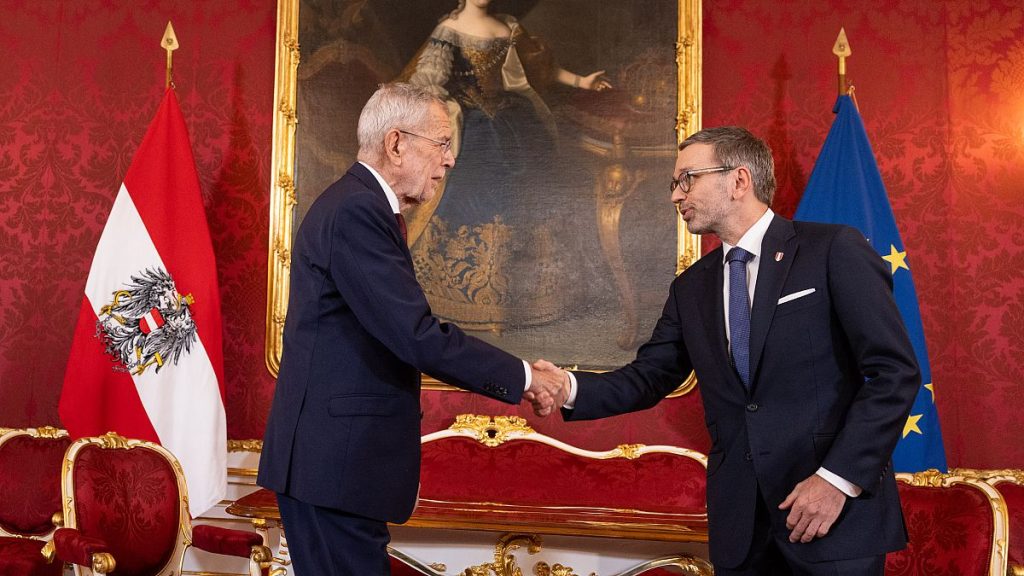Herbert Kickl, the head of Austria’s far-right Freedom Party (FPÖ), is facing challenging coalition negotiations following the recent national election. The FPÖ won nearly 29% of the votes, making it the party with the highest share but falling short of a majority. In order to form a government, Kickl must now seek a coalition partner, but the country’s other major parties, including the Social Democratic Party (SPÖ), the Green Party, and the NEOS, have all rejected the idea of collaborating with the FPÖ. The OVP, which was the former ruling party and secured 26% of the vote, said it might consider joining a coalition, but only if Kickl is not included in the government.
Kickl, known for endorsing conspiracy theories and controversial views, has faced criticism for his stance on various issues, including advocating for the use of Ivermectin during the COVID-19 pandemic and labeling the World Health Organization as an instrument for power interests. He has a history in the FPÖ, serving as a campaign strategist and later as the interior minister in a government that collapsed due to a corruption scandal involving the party’s former leader. Even Chancellor Karl Nehammer’s conservative Austrian People’s Party, which has previously formed coalitions with the FPÖ, considers Kickl a security risk and believes that it is impossible to govern with him due to his radicalized views.
The FPÖ, founded in 1956 by former Nazis, takes a hard-line stance on immigration and is largely Eurosceptic and Kremlin-friendly. It advocates for the remigration of uninvited foreigners and seeks to reclaim powers from the EU for Austria. The party is part of a right-wing populist alliance in the European Parliament called Patriots for Europe, who welcomed the Austrian election results as a continuation of gains seen in other countries. The FPÖ also calls for the lifting of sanctions against Russia and criticizes Western military aid to Ukraine, with Kickl going as far as labeling European Commission President Ursula von der Leyen as a warmonger.
Despite the FPÖ’s strong showing in the recent election, Kickl is finding it difficult to form a government due to the rejection of collaboration by other major parties in Austria. The SPÖ, Green Party, and NEOS have all ruled out joining a coalition with the FPÖ, leaving Kickl with limited options. The OVP, which could potentially join forces with the FPÖ, has made it clear that it will only do so if Kickl is excluded from the government. This exclusion demonstrates the level of concern surrounding Kickl and his controversial views within Austrian politics and highlights the challenges he faces in navigating coalition negotiations.
As Kickl works to navigate the difficult landscape of coalition negotiations, his controversial views and history within the FPÖ continue to be a point of contention for potential coalition partners. Despite the FPÖ’s strong showing in the election, the rejection of collaboration by other major parties underscores the challenges the party faces in forming a government. Kickl’s past as a campaign strategist and interior minister, as well as his controversial views on various issues, have made it difficult for him to find willing coalition partners. Ultimately, Kickl will need to navigate these challenges if he hopes to form a government and lead Austria forward.


